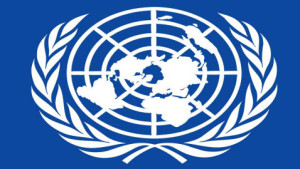November 29 2013

The draft resolution on Iran was approved with 83 votes in favor, 36 against and 62 abstentions. Some in Iran argued that it had not really been condemned because only 46 percent of the countries voted against it. In Iran’s Majlis, unlike elsewhere around the world, abstentions are counted as nay votes.
The resolution on Syria was adopted with 123 votes in favor, 13 against and 46 abstentions, while the drafts on North Korea and Myanmar passed by acclamation, although some states disassociated themselves from the texts.
The draft resolutions were approved by the General Assembly’s Third Committee, which focuses on human rights. The resolutions will be put to formal votes next month in the full General Assembly. However, since the committee and the General Assembly all have the same membership—all 193 UN member states—the December votes normally differ only minimally from the committee votes.
The resolutions on these four countries have become almost an annual rite. They signal international displeasure and further isolate those states but have no legal consequences. All four countries lobby hard against the adoption of the resolutions.
While the draft resolution on Iran expressed concern at serious ongoing abuses, it also welcomed pledges by President Rohani, such as eliminating discrimination against women and members of ethnic minorities and advancing freedom of expression.
The resolution—which was drafted by Canada—also praised Rohani’s plan to implement a civil rights charter and encouraged Iran “to take concrete action to ensure these pledges can result in demonstrable improvements as soon as possible and to uphold the government’s obligations under its domestic laws and under international human rights law.”
If the General Assembly vote next month is identical to last week’s vote, it will show a modest erosion in the number of countries criticizing Iran. The high point for votes backing the critical resolution was 89 in 2011, falling to 86 last year and 83 in this year’s committee vote.
The UN envoy on human rights in Iran, Ahmed Shaheed, told the committee last month that Iran’s rights record should not be overlooked amid overtures to the West by Rohani. He said Iran’s human rights compliance was actually worse this past year under President Ahmadi-nejad than in previous years and criticized Tehran for executing 724 people in 18 months, including dozens since Rohani was elected in June.
Iran’s UN ambassador, Mohammad Khazaee, said the draft UN resolution “does not acknowledge the positive human rights developments in the Iranian society” and was “devoid of facts.”
He said, “The Islamic Republic of Iran has taken a long-term approach and genuine measures to safeguard all human rights of its people.”
Khazaee also made a point of attacking Canada as the chief sponsor of the resolution every year for the past decade since Iranian-Canadian dual national Zahra Kazemi was beaten to death at Evin prison. He said, “Due to the political intentions of the Canadian government, the draft resolution lacks credibility and legitimacy and is basically unrelated to basic freedoms and human rights.” He charged that Canada was using a bilateral dispute to play with the feelings of the UN member states.
He complained that Canada had deprived Iranians in Canada of consular services by breaking relations last year, and he asserted that Canada had no standing on human rights issues since it refrained from condemning last week’s bombing at the Iranian embassy in Beirut.
That was an odd statement given that Canada issued a condemnation the day after the bombing, saying, “Canada strongly condemns the bombings that took place yesterday in Beirut” and labeling them a “heinous terrorist attack.”
In Tehran, Foreign Ministry spokeswoman Marziyeh Afkham denounced the text. She said the resolution was drafted based on websites run by Western governments and “infamous” terrorist groups. She said Iran “strongly rejects the definition [of human rights] and content of this resolution.”